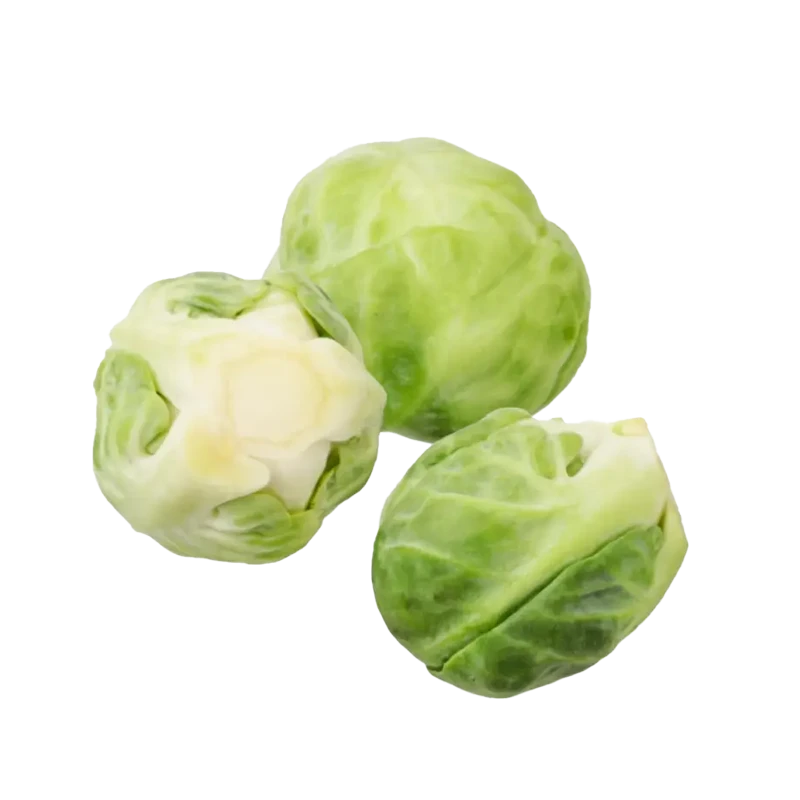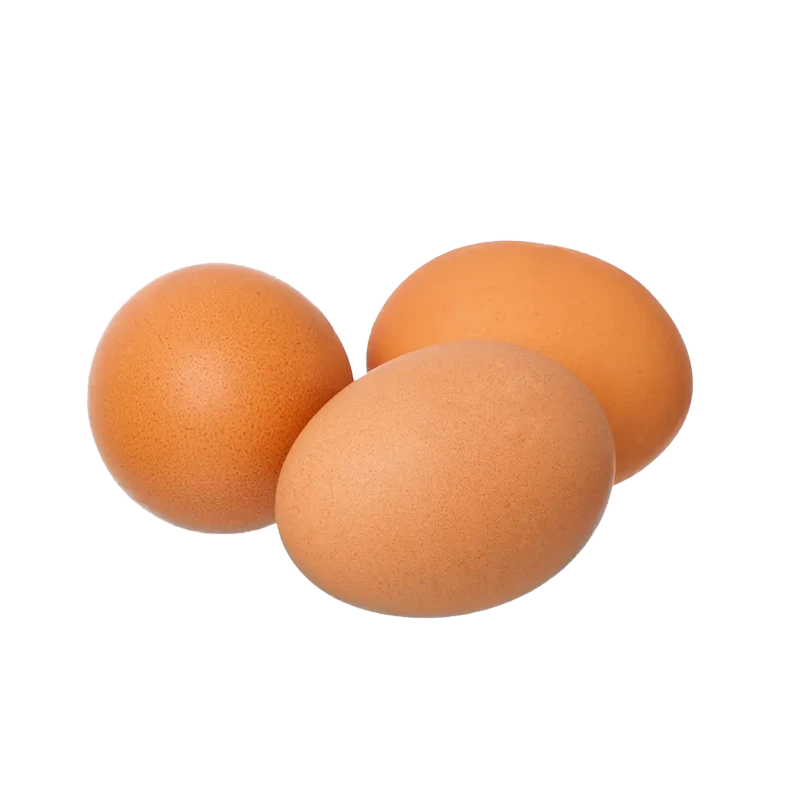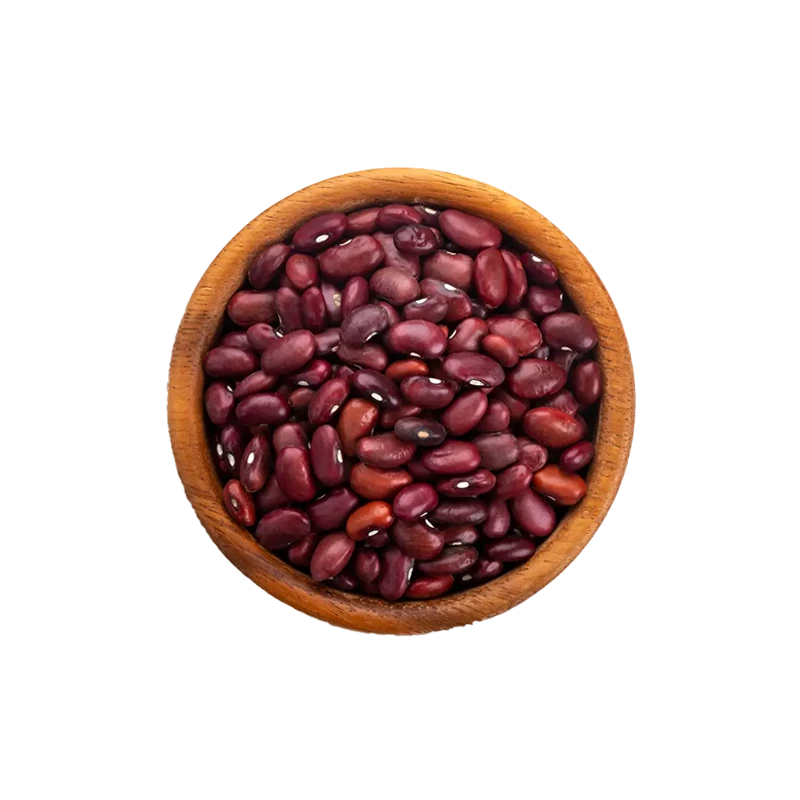Brussels Sprouts — Nutrients, Health Benefits, and Shopping Tips

Written by Listonic Team
Last update on September 4, 2024
Nutrients
Nutrition facts
Amount per 100 g
Calories
🔥 43 kcal
| Nutrients per: 100 g | Value | % Daily Value* |
|---|---|---|
| Carbs | 9 g | 3.27% |
| Fiber | 4 g | 14.29% |
| Sugars | 2 g | 4% |
| Glycemic Index | 32 | - |
| Protein | 3 g | 6% |
| Sodium | 25 mg | 1.09% |
| Total Fat | 0 | - |
*The % of Daily Value (DV) tells you how much a nutrient in a serving of food contributes to a daily diet. 2,000 calories a day is used for general nutrition advice.
32
🟢 Low Glycemic Index
Key takeaways
Health benefits
- Rich in vitamins and minerals such as Vitamin C, Vitamin K, folate, and manganese, which are essential for overall health and well-being.
- High in fiber, supporting digestive health, promoting regular bowel movements, and maintaining a healthy gut microbiome.
- Contains antioxidants such as kaempferol, which help protect the body from free radicals and reduce the risk of chronic diseases.
- Supports immune function with its high Vitamin C content, which helps in fighting infections and maintaining overall health.
- Promotes bone health due to its high Vitamin K content, which is important for bone density and strength.
Health risks
- Digestive discomfort such as gas, bloating, or stomach cramps due to the high fiber content and certain carbohydrates that can be difficult to digest.
- Potential for goitrogens as Brussels sprouts contain compounds that can interfere with thyroid function, particularly when consumed raw in large amounts.
- Potential pesticide residue on conventionally grown Brussels sprouts, which can pose health risks over time if not properly washed.
- Interaction with blood thinners due to the high vitamin K content in Brussels sprouts, which can affect blood clotting in individuals taking these medications.
How to choose brussels sprouts
Brussels sprouts should be small and compact, with bright green heads. They should be firm and heavy for their size. The leaves should be tightly packed without any yellowing or holes.
Avoid Brussels sprouts that have loose leaves or are puffy, signs they are past their prime. Also, steer clear of any with a strong, unpleasant odor or signs of mold, indicating spoilage.

How to store brussels sprouts
Brussels sprouts should be stored in the refrigerator, ideally in the crisper drawer. Keeping them in a perforated plastic bag helps maintain their freshness and crispness for up to a week. Properly stored, Brussels sprouts retain their nutrients and flavor.
Excess moisture can cause Brussels sprouts to spoil, so keeping them dry is important. Do not wash before storing, as residual water can accelerate spoilage. Keeping them away from ethylene-producing fruits helps prevent premature wilting.
✅ Extra Tip
How long do they last?
Brussels sprouts can last for 3-5 days in the refrigerator. For longer storage, they can be blanched and frozen, lasting up to 12 months. Store them in a plastic bag to maintain their freshness.
What to do with leftovers?
Leftover Brussels sprouts can be used in a variety of dishes. Slice them thinly and add to a salad for a fresh, crunchy texture, or mix them into a stir-fry with other vegetables and protein. Brussels sprouts are also great in roasted vegetable dishes, where their caramelized edges add depth of flavor.
Use Brussels sprouts in quiches or frittatas, where they add both flavor and texture. They can also be sautéed with bacon and onions for a simple side dish, or mixed into a pasta dish with a creamy sauce. If you have a lot of Brussels sprouts, consider making a Brussels sprout gratin with cheese and breadcrumbs, or roasting them with balsamic vinegar and honey for a sweet and savory dish. Brussels sprouts can also be chopped and added to a grain bowl with quinoa or couscous, or used as a topping for pizzas and flatbreads.
👨⚕️️ Medical disclaimer
How brussels sprouts support specific health conditions
Brussels sprouts are packed with fiber, promoting digestive health and regular bowel movements. They are rich in vitamin C, supporting immune health, and contain antioxidants like kaempferol, which may reduce inflammation and support heart health. Additionally, Brussels sprouts are high in vitamin K, contributing to bone health by improving calcium absorption. Their sulfur-containing compounds may also support liver health by promoting detoxification.
Discover products from other categories
Listonic Team
Fact-checked
Our editorial team checked this article to make sure it was accurate at the time of publishing it.
Get the top-rated shopping list app

brussels sprouts







